-
(818) 833-8737
13521 Hubbard St.Sylmar, CA 91342
- Login
Inmate firefighters: Over 1,000 prisoners deployed to battle Los Angeles fires
Posted on 01/17/2025
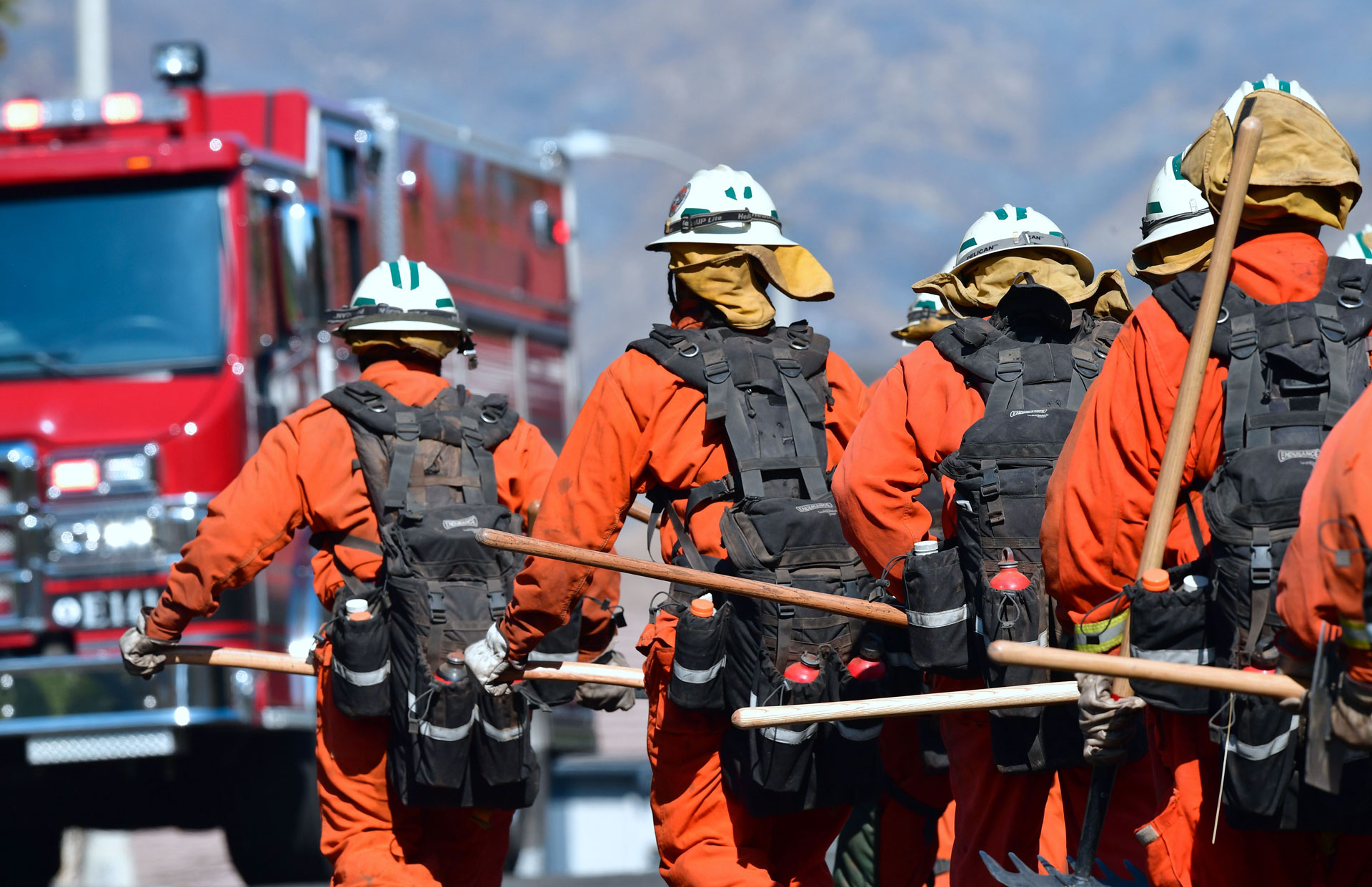
Inmate firefighters: Over 1,000 prisoners deployed to battle Los Angeles fires
As brush fires continue to spread across Los Angeles County, more than 1,000 prisoners, working as "incarcerated firefighters," are among the emergency responders fighting the blazes, the California Department of Corrections and Rehabilitation confirmed to ABC News.
The prisoners, who voluntarily sign up to be a part of the Conservation (Fire) Camps Program, are embedded with the California Department of Forestry and Fire Protection, or Cal Fire, crew members.
Participating individuals are typically paid between $5.80 and $10.24 per day plus $1 an hour when responding to active emergencies, according to the CDCR.
Those responding to the Los Angeles fires and working 24-hour shifts are earning $26.90 per day, according to the law enforcement agency.
XXX
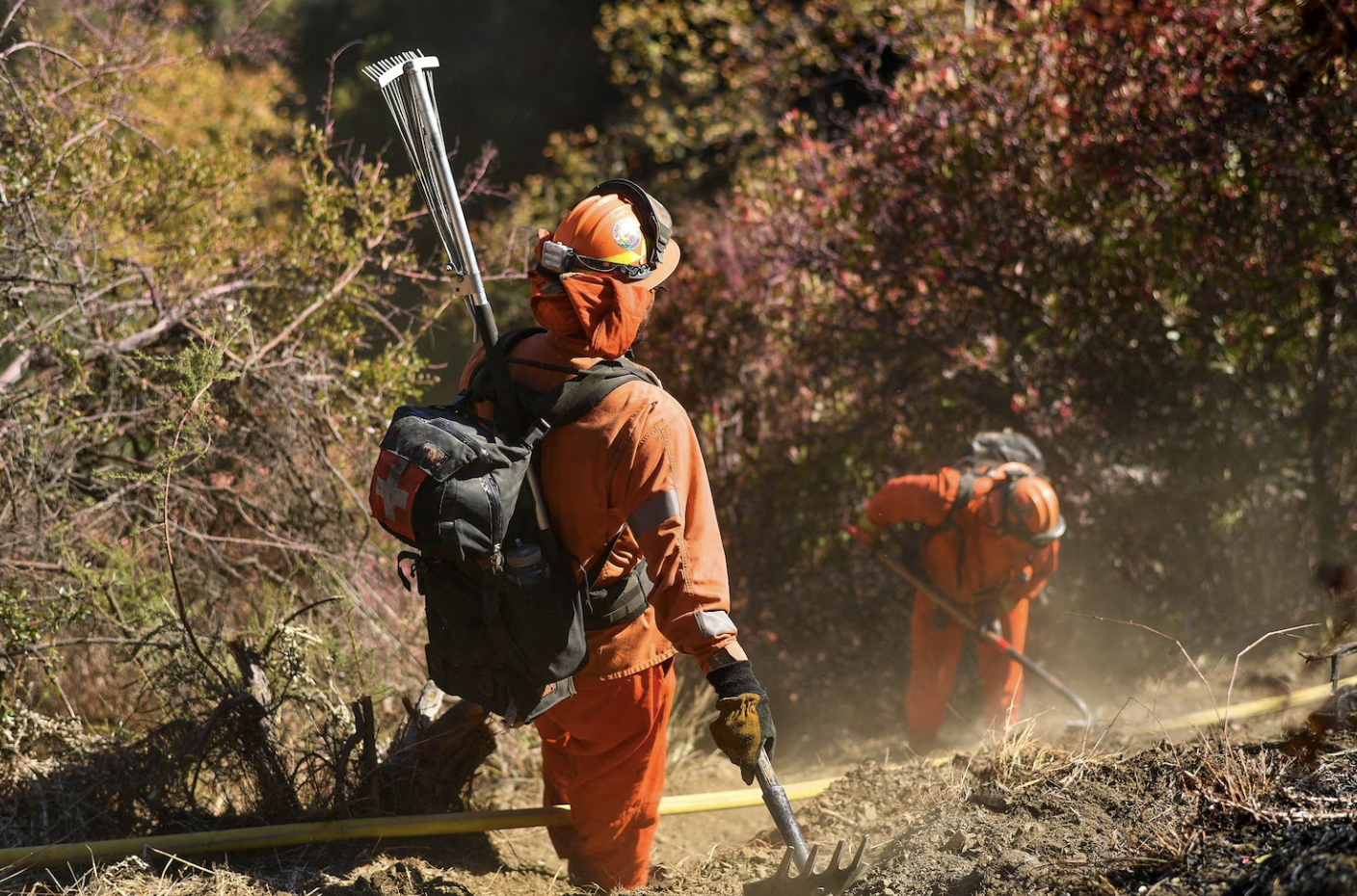
"CDCR Fire Camp Program firefighters are proud to be embedded with CAL FIRE personnel to protect lives, property and natural resources in Southern California," the agency said in a statement.
Incarcerated firefighters have been working "around the clock" cutting fire lines and removing fuel from behind structures to slow fire spread, the CDCR said, adding that the program is a source of "crucial support" during emergencies.
The exact number of hours and shifts the incarcerated crew members have worked since brush fires erupted in Los Angeles on Jan. 7 was not immediately clear.
The agency said the program paves the way for professional emergency response certifications and job opportunities after an inmate's release. It also allows for criminal record expungement and opportunities to reduce their sentences, according to the CDCR.
Most incarcerated fire crew members receive two additional days off their sentence for every one day they serve on a fire crew, according to the agency, and camp volunteers, who work as support staff but not on a fire crew, receive one day off their sentence for every one day they serve.
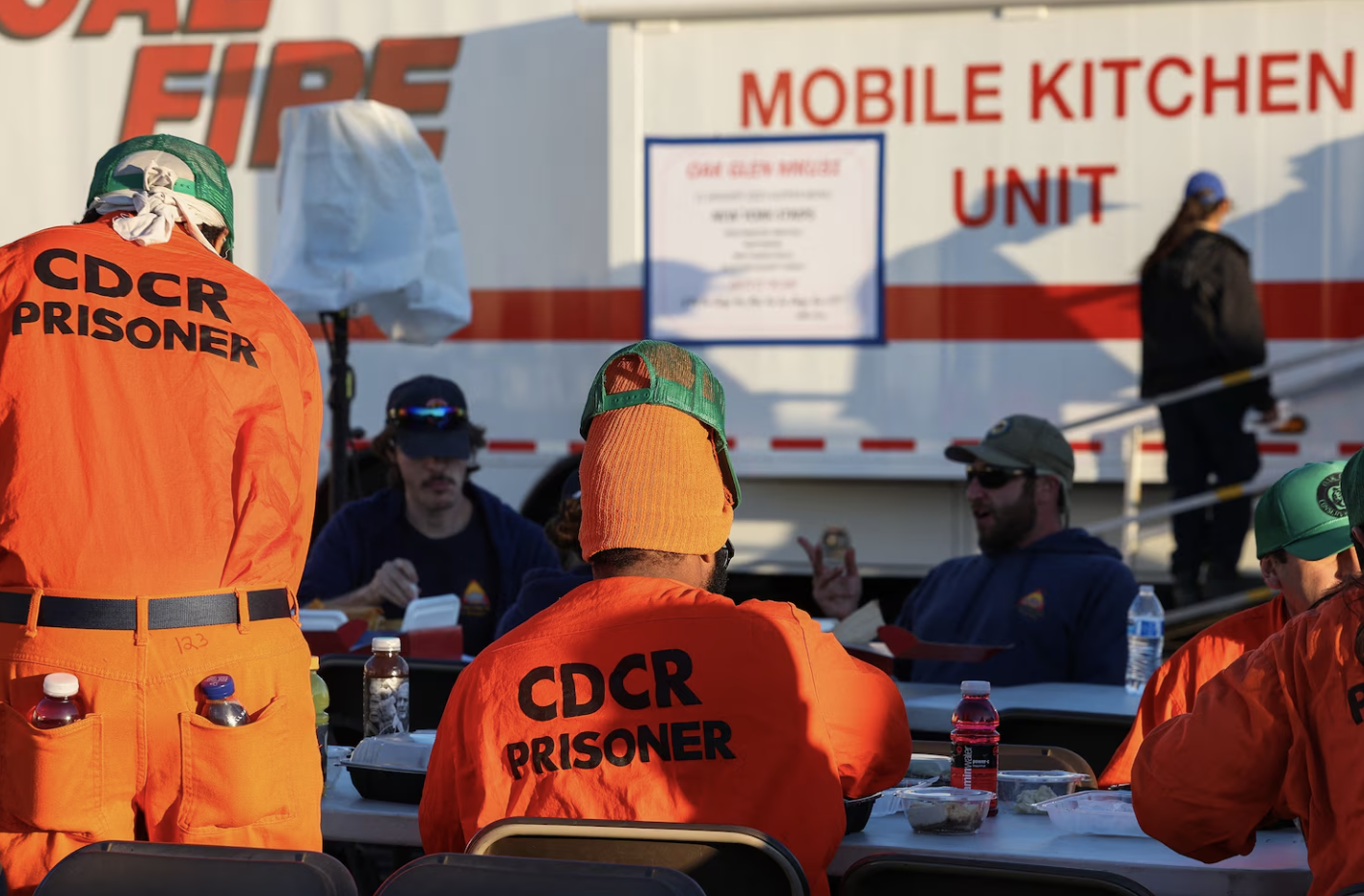
The inmate firefighting program dates back to 1915 but largely expanded in California in the 1940s because of firefighter shortages during World War II, according to the CDCR.
The state's Assembly Bill 2147, which passed in 2020, allowed inmate firefighters to petition courts to dismiss their convictions after serving their time.
The Los Angeles fires have brought renewed attention to the program, drawing some criticism over the wages the inmate firefighters receive.
Kim Kardashian took to social media over the weekend to call for California Gov. Gavin Newsom to raise their wages. "I am urging @cagovernor to do what no Governor has done in 4 decades, and raise the incarcerated firefighter pay to a rate [that] honors a human being risking their life to save our lives and homes," Kardashian wrote.
In comparison, California firefighters typically earn a monthly base salary between $3,672 and $4,643 plus an additional $1,824 to $2,306 of extended duty week compensation every four weeks, according to Cal Fire.
The CDCR's inmate fire program operates 35 minimum-security facilities in 25 counties across California, including two camps designated for incarcerated women.
There are more than 1,800 incarcerated individuals staffing the camps across the state, according to the agency.
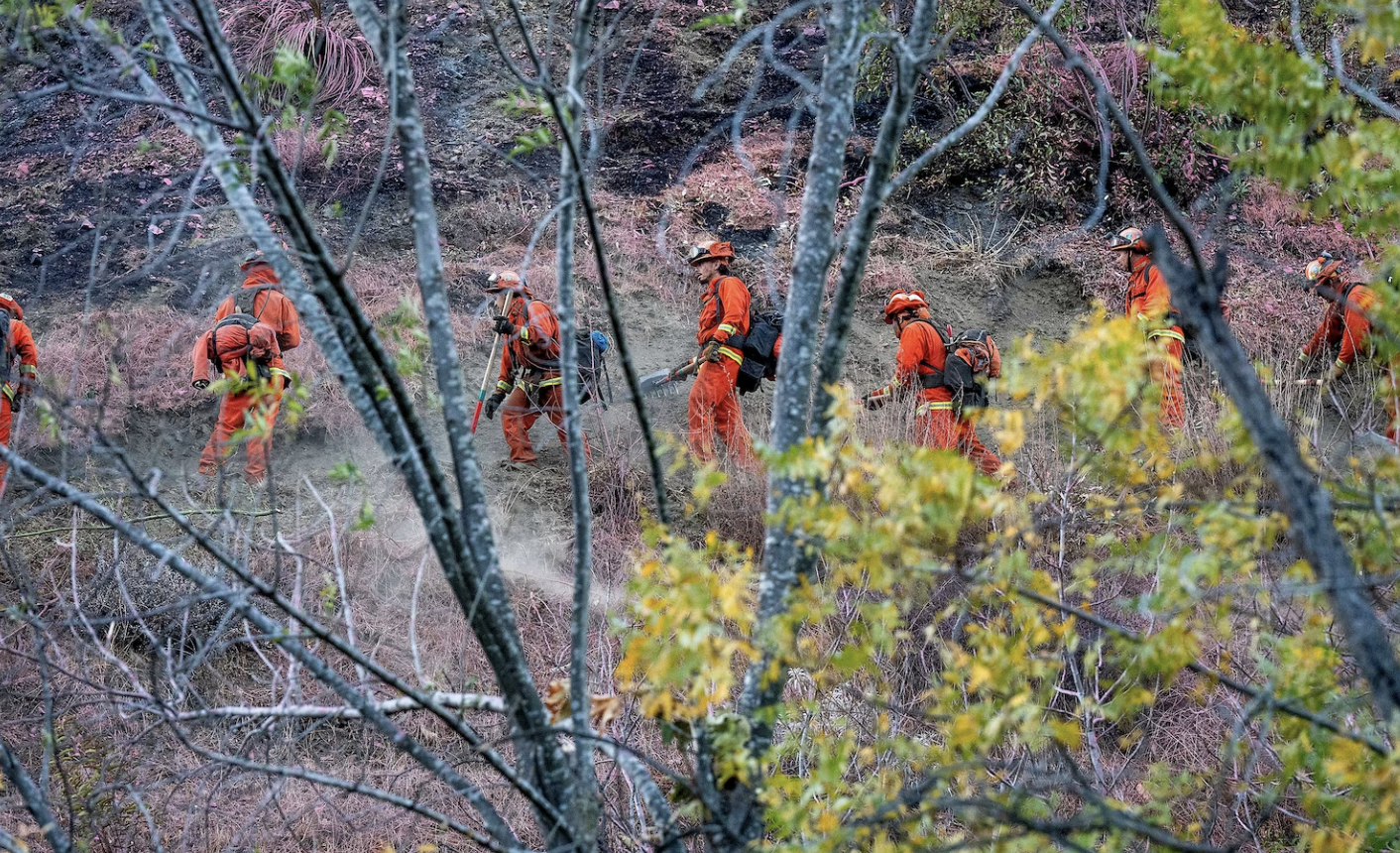
Participating prisoners have joined the thousands of federal, state and local emergency responders who are battling at least four active wildfires across Los Angeles County as of Tuesday.
The largest of the devastating blazes, the Palisades Fire in the Pacific Palisades, has scorched more than 23,000 acres, destroyed thousands of structures and remains at 17% containment as of Tuesday afternoon.
The Eaton Fire, in Altadena, has spread over 14,000 acres and is 35% contained, according to Cal Fire. There have been at least 24 deaths between the two fires -- a number officials warn may rise as emergency efforts continue.
Approximately 88,000 Los Angeles County residents are under evacuation orders Tuesday as another dangerous Santa Ana wind event is forecast to impact the already vulnerable region.
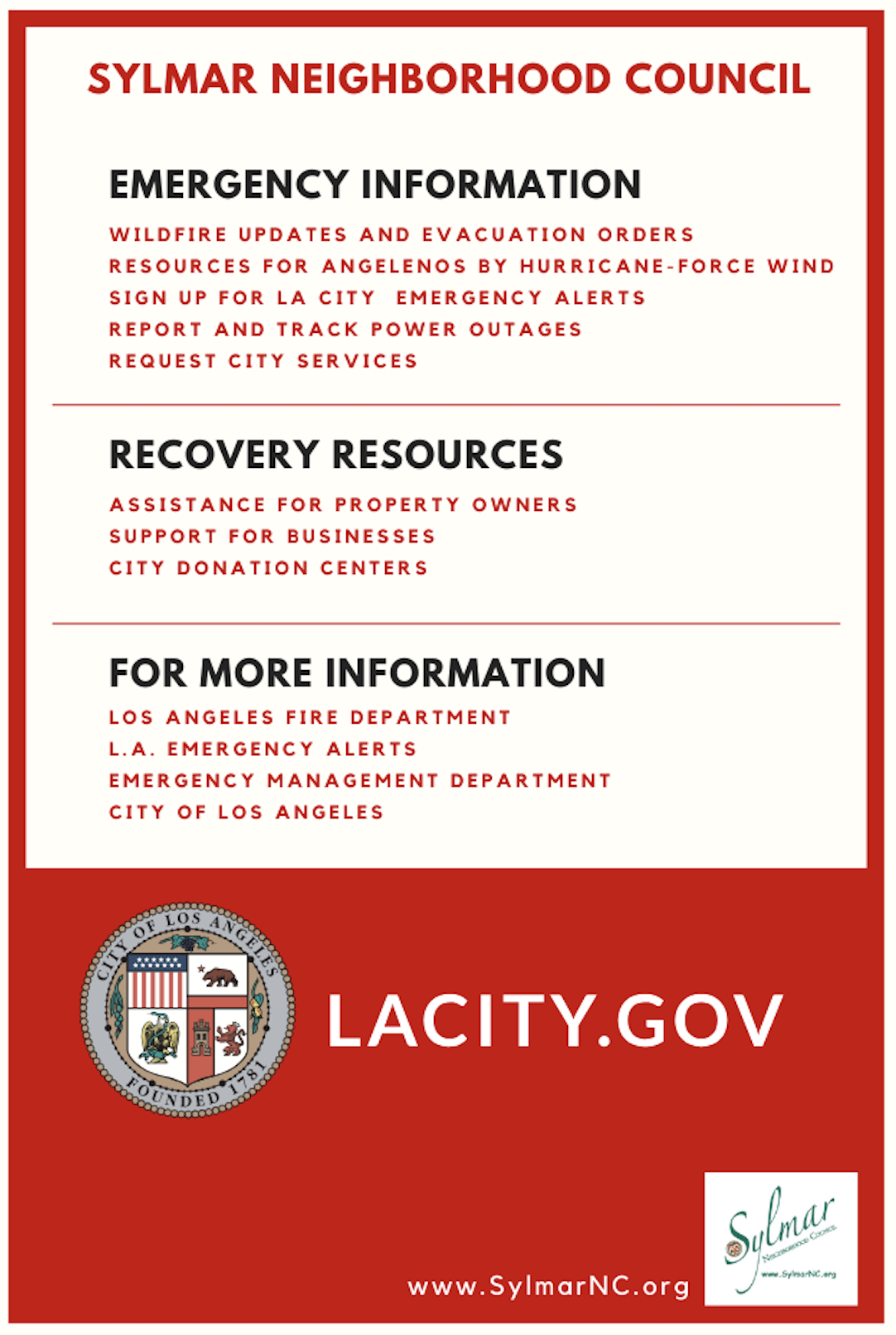
LA City Hub - Click for LA Fire Resources


MyLA311
Upcoming Meetings & Events
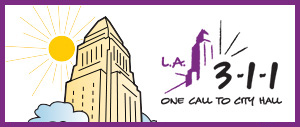
My LA 311
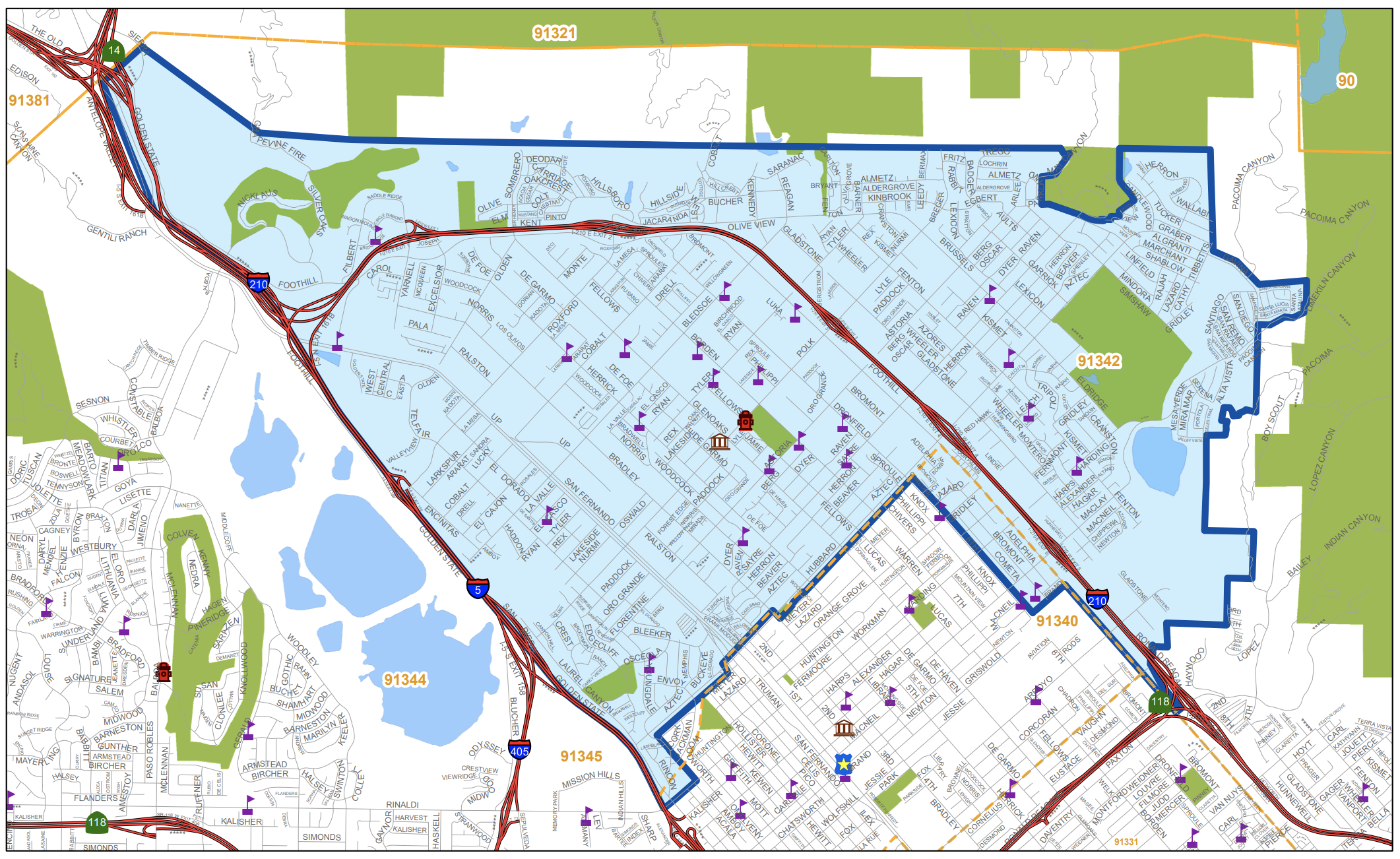
Area Boundaries and Map
View our neighborhood council boundaries for which we deal with.

EMPOWER LA

NEIGHBORHOOD COUNCIL CALENDAR & EVENTS
The public is invited to attend all meetings.

NEIGHBORHOOD COUNCIL FUNDING SYSTEM DASHBOARD

SUBSCRIBE TO NC MEETING NOTIFICATION


